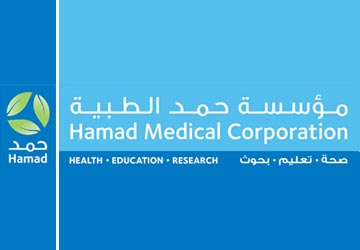

DOHA: New strategies and approaches that will allow parents to have more positive newborn screening experience, has been identified by experts at the sixth International Workshop on Newborn Screening and Liver Cell Therapy held in Doha recently.
Hamad Medical Corporation (HMC), in collaboration with the University Children’s Hospital (UCH) in Heidelberg, hosted the three-day workshop.
The event highlighted latest advances and emerging ideas in the field of metabolic and endocrine screening and comprised interactive presentations by leading experts and eminent scientists from Germany and Qatar.
Senior Consultant, Pediatrics Neonatology, and Head of the Newborn Screening Unit at WH, Dr Ghassan Abdoh said that an important aspect of the workshop was the impact of newborn screening on parents.
“Parental anxiety and stress during newborn screening is a common phenomenon. This is usually due to parents’ lack of information and understanding of the screening process and in some cases due to the time it takes to receive the screening results. With the exchange of expertise at this workshop, we have been able to identify new strategies and approaches that will allow parents to have more positive newborn screening experience,” said Dr Abdoh.
More than 160 healthcare professionals including neonatologists, pediatricians,metabolic laboratory personnel, and nurses participated in the workshop, which served as a dynamic platform to emphasise early detection and prevention of inborn diseases.
Many babies are born with potentially severe diseases that can have detrimental effects to their health. Effective newborn screening programmes such as the Qatar Newborn Screening Program (QNSP) allow healthcare professionals to discover the diseases within the first few hours of life, resulting in prompt medical intervention.
Medical Director of Women’s Hospital (WH) and Director of the QNSP, Dr Hilal Al Rifai, underlined that QNSP is one of the most fruitful preventive programs in Qatar, which requires all babies born in the country to undergo comprehensive and free-of-cost screening for a number of metabolic and endocrinal diseases. According to Dr Al Rifai, over 200,000 newborns have been successfully screened in Qatar since the launch of the programme in 2003. The workshop also shed light on the latest outcome of the International Safety and Efficacy of Liver Cell Application project, established as a joint venture between HMC, UCH and German biotech company, Cytonet GmbH & Co. The programme has been instrumental in facilitating the treatment of newborns affected with urea-cycle defect, a rare genetic disorder caused by a deficiency of the enzymes responsible for cleaning out toxins from the blood stream.
Prof Georg Hoffman, Professor of Pediatrics and Chairman of the Department of Pediatrics, University of Heidelberg said: “The workshop builds from the successful collaboration between two world-class medical centres, HMC and UCH, in the area of newborn screening and metabolic medicine. As a result of this collaboration, hundreds of children and families have been saved from experiencing the devastating effects of severe inherited diseases and now enjoy an improved quality of life. Qatar has certainly emerged as one of the few countries in the world to offer the most effective preventive healthcare services.”
Prof Hoffman added that joint efforts by both organisations have led to increased training opportunities for healthcare professionals working in this field. “We have been able to provide highly-specialised and advanced training to several doctors and nurses from Qatar and are now hoping to also extend this wonderful programme to healthcare professionals from other GCC countries.”
The Peninsula




